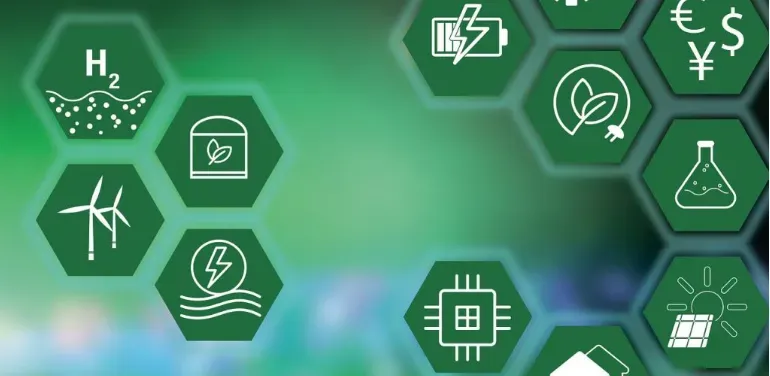The Africa-EU-China Hydrogen Industry Cycle
Co-hosted by the European Institute for Asian Studies (EIAS) and the Institute for China-Europe Studies (ICES)

On October 26, 2023, the European Institute for Asian Studies (EIAS) and the Institute for
China-Europe Studies (ICES) had the pleasure of hosting an expert discussion on The Africa-EU-China Hydrogen Industry Cycle.
Against the backdrop of the adoption of green hydrogen as a pivotal component of the global race
to carbon neutrality, industrialization, job creation and the broader commitment to sustainability,
this event in the format of a closed-door expert roundtable discussion will highlight Africa’s
significant potential for green hydrogen production. With the aim of helping establish partnership
models among public and private stakeholders from Africa, EU and China, the discussion will focus
on challenges and opportunities, as well as the required resources and finances in the planning
and implementation phases of related projects.
The event follows the European Union’s announcement in May 2022 of its objective to produce 20
million tons of green hydrogen by 2030 (including half to be imported), as well as the presentation
in November 2022 of a report commissioned by the European Investment Bank and CGLU Africa calling
for 50 million tons of green hydrogen to be produced in Africa by 2035. The roundtable discussion
precedes the COP 28 in Abu Dhabi where Africa, the EU and China will need to provide further commitments
on climate change policies while upholding the fight for common prosperity and poverty reduction.
There is now a strong case that the twin objective of decarbonization and
(re)industrialization of both Africa and Europe – and the expected benefits in terms of
economic development and mitigation of migrations – can be enabled by the combination of
hydrogen infrastructures and industrial hubs leveraging mass-scale competitive green hydrogen
supply from renewable-rich Africa, building on the Chinese industry’s considerable competitive
solar PV and electrolyzer capacity – and its stated intention to invest in such capacity in
both Africa and Europe.
The roundtable featured two workshops, respectively on
Resources & Production and on Industry & Finance. They consisted of short presentations by
panel members, interactive exchanges between panel members, and Q&A sessions with
participants. For further information, find the agenda below. Further, you can read more about
the EIB Study on Africa’s Green Hydrogen Potential
here.
Agenda
Hakima El Haite, former Minister of Environment of Morocco, UN Adviser for Zero Waste
Christian Weinberger, Former Senior Advisor to the Director General for Energy, European Commission
Presentation of the EIB-sponsored study on Africa’s Extraordinary Green Hydrogen Potential
Matthieu Crest, Partner, Corporate Value Associates
Thierry Lepercq, President, HyDeal
Africa’s hydrogen resources and plans: government strategies on mass-scale green hydrogen as a key to energy security and industrialization, production and infrastructure projects developed by energy firms.
Moundir Zniber, CEO, Gaia Energy
Gabrielle Gauthey, Senior Vice-President for European Public Affairs, TotalEnergies
Wim Damme, Head of Hydrogen & Ammonia Trading, Envision
Moderated by: Lin Goethals, Director, EIAS
Construction, engineering and financing of mass-scale competitive green hydrogen: technology and equipment (solar photovoltaics, wind, electrolysis), engineering and construction, debt and equity financing and the pathway fossil fuel parity.
Mohamed El Hamed, Senior Advisor to the President of BNM, Islamic Republic of Mauritania
Hugues Seutin, Director, Hyfinity, Vinci Construction
Christopher Tan, Vice-President, Power China Eurasia
Moderated by: Thierry Lepercq, President, HyDeal
Thierry Lepercq, President, HyDeal